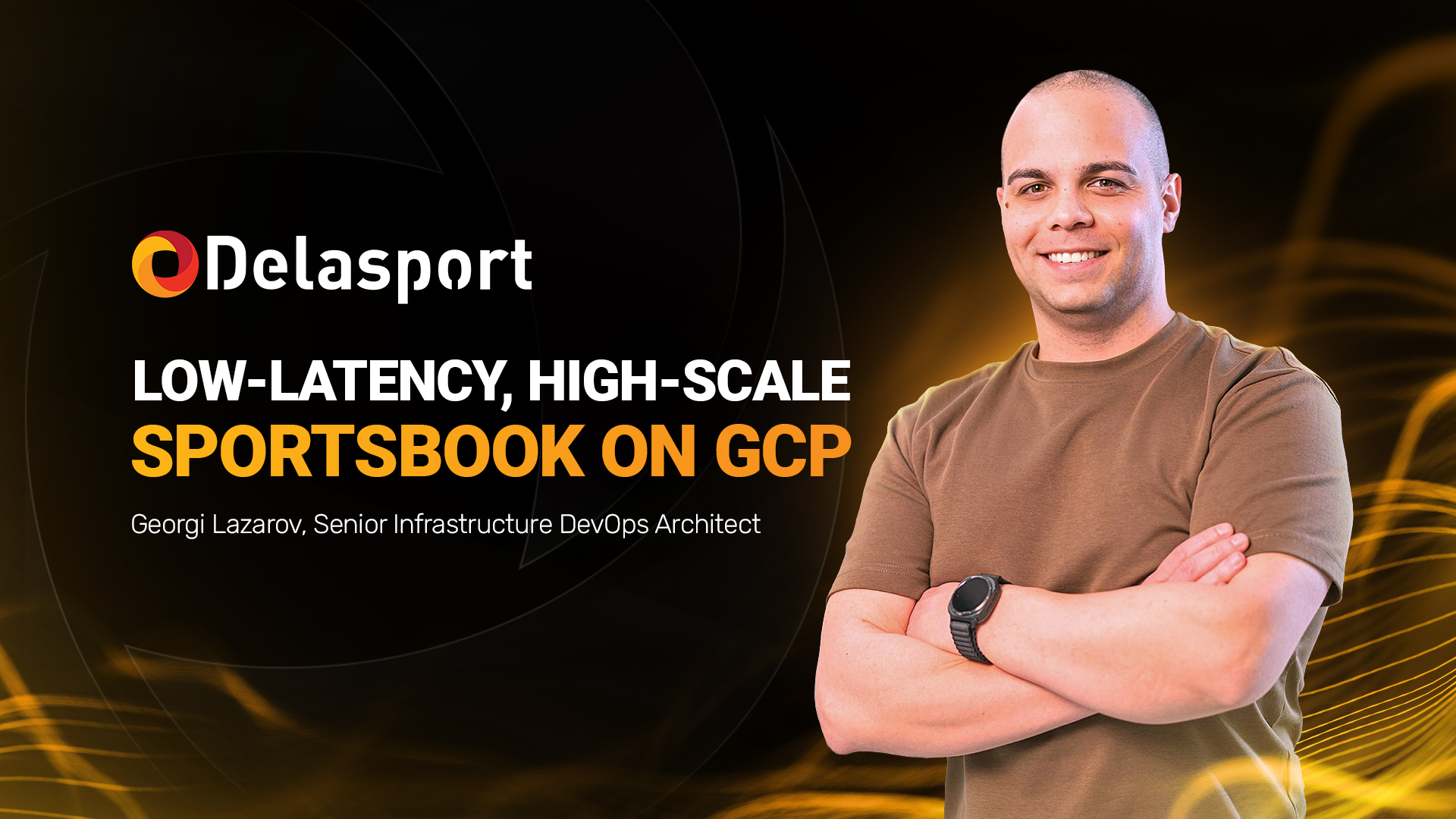
In sports betting, every millisecond matters. Odds must update instantly, wagers must confirm without delay, and the platform must handle massive bursts of traffic - all while staying compliant with regulations across multiple jurisdictions.
A goal in the Champions League final, a knockout in a UFC fight, or a decisive ace in tennis can trigger thousands of bets within seconds.
Delasport’s solution: a Google Cloud-powered DevOps architecture built for low latency, high throughput, and rock-solid reliability.
The company’s Senior Infrastructure DevOps Architect Georgi Lazarov walks us through the process of achieving this remarkable result.
Global Low-Latency Delivery
Delasport’s strive for close to zero latency makes the team explore every tech advancement out there and utilize those that would improve the processes significantly. This is why the list of services, solutions, and approaches is rather impressive itself:
All of this and more helps Delasport’s solutions instantaneously reach every part of each regulated market they’re present in.
Just as important is the scaling stack that Delasport’s infrastructure team uses to ensure operators’ flexibility. It includes some of the best solutions in IT in general:
Cluster Scale: GKE Cluster Autoscaler with Node Auto-Provisioning (NAP) scales node capacity within minutes, enabling up to 5× throughput growth without latency degradation.
Ingress Scale: KEDA dynamically scales the ingress controller based on RPS/latency, reducing 99th percentile response time by 20% during traffic bursts.
Application Tier Scale: KEDA scales frontend services on live traffic metrics, keeping p95 latency under 150ms even at peak load.
Guardrails: PodDisruptionBudgets, topology spread, and slight over-provisioning prevent brownouts during scale events.
During the World Cup final, Delasport sustained tens of thousands of transactions per second with low p95 latency because:
From trying out the latest innovations come some key lessons. The DevOps Engineers and Infrastructure Experts at Delasport know this all too well. This is why they make sure to keep track of the important takeaways.
The first lesson in their textbook says that low latency isn’t just about speed - it’s the foundation of scalability and reliability in real-time sports betting.
Another important point is that by combining Cloudflare’s edge optimizations (Edge Network, Argo Smart Routing) with Google Cloud’s global networking (Global External HTTP(S) LB with Anycast IP plus zonal NEGs ), Topology-Aware (PreferClose) routing, DNS tuning, GKE Cluster Autoscaler (with NAP), and KEDA‑driven autoscaling, they’ve built an infrastructure that adapts instantly to spikes. At the same time it keeps the player experience smooth and secure.
“When the next big sporting moment happens, we’ll be ready - instantly, securely, and globally”, Georgi Lazarov says in conclusion.
All of this makes Delasport’s Infrastructure vertical one of the most intriguing in the industry and what’s even better - they’re always looking to grow, so Georgi advises everyone to keep an eye on Delasport’s career pages.


